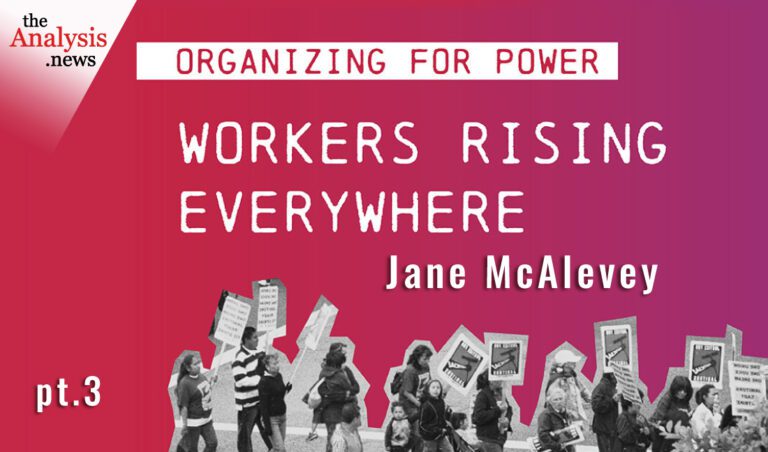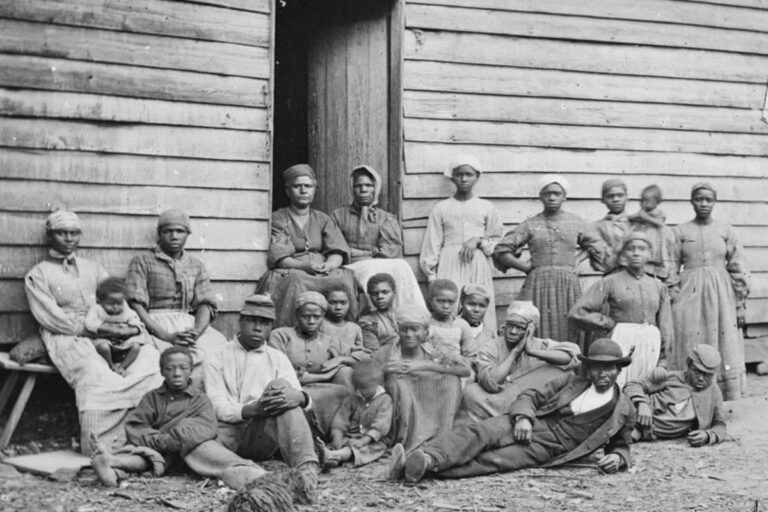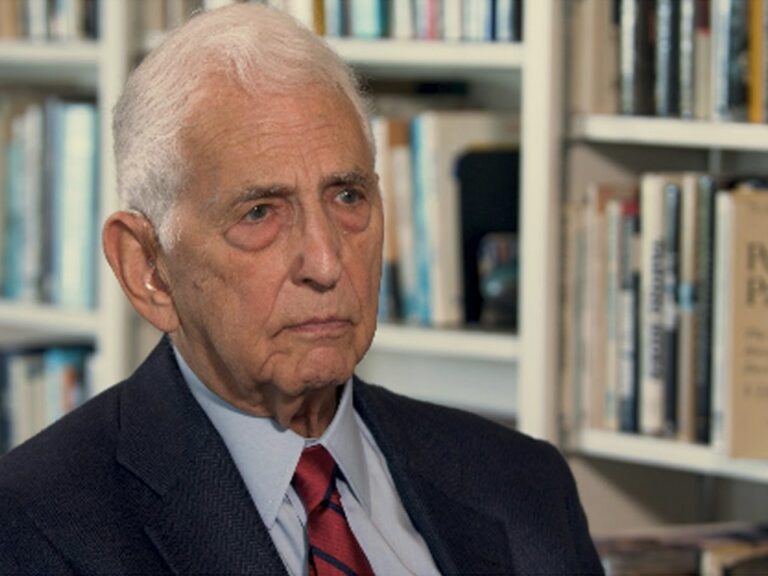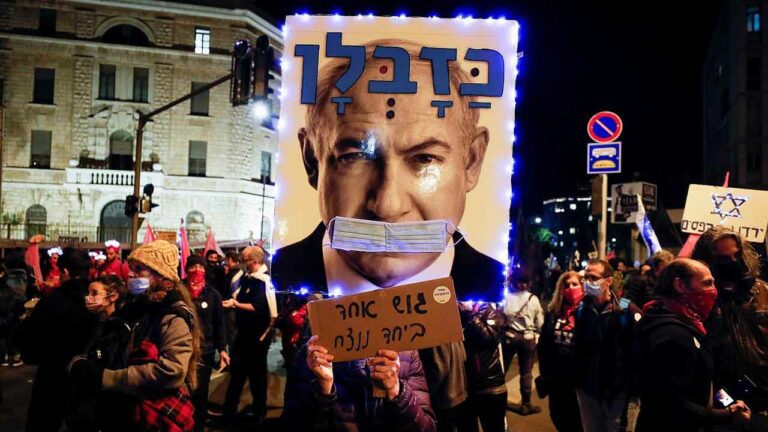This is an episode of Reality Asserts Itself, produced on October 29, 2013. In this episode of Reality Asserts Itself with Paul Jay, Max Blumenthal author of Goliath – Life and Loathing in Greater Israel, looks at Tzipi Livni, whose support for expelling Israeli Palestinians even surprised Condoleezza Rice.
PAUL JAY, SENIOR EDITOR, TRNN: Welcome to The Real News Network. I’m Paul Jay in Baltimore. And welcome to Reality Asserts Itself.
This is a continuation of our series of interviews with Max Blumenthal, author of the book Goliath: Life and Loathing in Greater Israel. Part one of our interview (which I suggest you watch before you watch this one, part two, so you get all the context), we left off with a critique of right-wing Israeli overtly racist politics. And at its core is the policy of expulsion, taking away citizenship from Arab Israelis and pushing them into occupied territories. Well, this segment is about the Israeli center and how different is it. It’s positioned as being more moderate.
So here is a quote from Max’s book, speaking about Tzipi Livni, who was then foreign minister:
During the so-called Annapolis track of peace process negotiations that lasted from 2000 to late 2008, Livni attempted to transform the negotiations into a forum for salvaging the Jewish demographic majority through transfer. Livni demanded that the Palestinian Authority allowed Israel to transfer a series of impoverished Arab towns in northern Israel located near the Green Line and all their non-Jewish residents into its hands.
He continues further down:
In a 2008 meeting within then secretary of state Condoleezza Rice, Livni emphasized Israel’s rejection of Palestinian refugees’ right to return to their confiscated land and property inside Israel, on the grounds that the refugees threatened Israel’s Jewish character. Rice, an African-American raised in the Jim Crow American South by a pro-civil rights Baptist preacher, shuddered at the implications of Livni’s statement. Quote: I must admit that though I understood the argument intellectually, Rice reflected, it struck me as a harsh defense of the ethnic purity of the Israeli state when Tzipi said it. It was one of those conversations that shocked my sensibilities as an American. After all, the very concept of American rejects ethnic or religious definitions of citizenship. Moreover, there were Arab citizens of Israel. Where did they fit in?
Now joining us in the studio to discuss his book and the center of Israeli politics is Max Blumenthal. Max is an award-winning journalist, best-selling author whose articles and video documentaries have appeared in many publications, including The New York Times. His most recent book, as I said, is Goliath: Life and Loathing in Greater Israel.
Thanks for joining us again.
MAX BLUMENTHAL, AUTHOR, JOURNALIST, BLOGGER: Good to be with you.
JAY: So talk a bit about–first of all, it’s kind of alarming or amazing that someone could actually alarm Condoleezza Rice, given what she was up to in the Bush administration. But talk about the so-called Israeli center.
BLUMENTHAL: And Rice eventually came around to supporting this position that Livni was offering.
But, yeah, you mention Tzipi Livni, and she’s currently in Netanyahu’s cabinet as the leader of the Hatnuah Party, which is supposedly a centrist party. And she’s promoted to the American public as the peacemaker. You’ll see her on stage with John Kerry on–her on one side and Saeb Erekat, the Palestinian Authority negotiator, on the other side. And she’s portrayed as sort of–she’s there to cover Netanyahu, basically.
But we have to see her as a product of the same political environment and mentality as Netanyahu. She comes from the Likud Party. She was an aide to Ariel Sharon. And she really at heart is kind of a Likudnik, but she uses much more enlightened rhetoric, except during Operation Cast Lead when she said that our troops behaved like hooligans, which I demanded of them, which is sort of a remarkable statement she’s never been asked about in interviews here. But in this case, she’s advancing a plan during the Annapolis track of negotiations between Israel and the Palestinian Authority back in 2007, where she is advancing Plan Lieberman through negotiated means, where they would redraw the borders around about 25,000 Palestinian citizens of Israel and strip them of their citizenship to enhance the ethnic purity of the state of Israel, as Condoleezza Rice said.
And so after that meeting was exposed–this happened behind closed doors. When the Palestine papers were leaked, when the minutes of these conversations were leaked by a disgruntled Palestinian negotiator–Ziyad Clot, who I interviewed, leaked them. Avigdor Lieberman and Yisrael Beiteinu were just overcome with joy, and in the Knesset they celebrated. They said, Tzipi Livni has embraced Plan Lieberman. And so they invited her to a Yisrael Beiteinu faction meeting. And she was extremely embarrassed by this, because it damaged her image. Of course, in Israel it didn’t damage her image, ’cause she can barely get elected a dog catcher. But in the West it threatened to damage her image. Of course, it wasn’t reported in our press here.
But now you start to see where the supposed center and the far right really line up. And it’s not just the center. It’s everyone all the way to Meretz, to the extreme end of the Zionist left. They reject the idea of Israel as a state of all its citizens. And they’re all engaged in this mock debate, which really is over the size of the cage Palestinians will live in–jumbo size or small–because they all agree that Israel has to engineer a Jewish demographic majority against the will of the indigenous Palestinian population.
The question is how to do it. So you have bills that were introduced well before Netanyahu came into power, like the Citizenship and Entry Law, which was passed. It’s the only law like it in any Western putative democracy. And this bans Palestinian residents of the West Bank from marrying Palestinian citizens of Israel. Meanwhile, I mean, if I move to a settlement in Hebron and I meet the woman from Tel Aviv that I want to marry, of course I can do that, ’cause I’m Jewish. So it’s clear apartheid designed to manipulate the demographics. And the Supreme Court, when this bill was–and this was supported by centrist parties. It was supported by members of the Labor Party, including Ehud Barak. When it was appealed before the Supreme Court of Israel–the court usually approves these decisions based on security. That’s how they kind of dismiss it. Even if it’s a racist bill, they’ll say, well, we need to do this for security. But in this case, their opinion actually acknowledged the demographic needs of the state. And this was the court under the control of Dorit Beinisch, who is considered a liberal in Israeli society.
Another bill that was introduced in the last Knesset by Benjamin Netanyahu was an amendment to Israel’s citizenship law, which imposed loyalty oaths for new applicants to become citizens of Israel, which demanded that they swear loyalty to the Jewish and democratic state. This was first introduced by Meir Kahane, the rabidly racist rabbi who was eventually banned from the Knesset for racist incitement. And now it’s been embraced not just by Netanyahu but by Ehud Barak, who was then the leader of the Labor Party, who voted for it and supported it. And so Haaretz actually published an article–I think by Chaim Levinson–declaring that, you know, Barak has come around to Meier Kahane’s position. This is really where the center-left and the center of Israeli politics are today.
JAY: Talk a little bit more of some of these loyalty laws and as a part of this process of stripping people of citizenship, which seems to go hand-in-hand with the idea of redrawing the map of Israel that are going to put many Arab towns in theory into the occupied territories.
BLUMENTHAL: Well, there is the–the most remarkable of these laws was the Nakba Law, which–you know, the Nakba is a reference to the Palestinian catastrophe, the ethnic cleansing of 750,000 Palestinians from what became the state of Israel in 1948. It’s a continuous process. And there are Palestinian citizens of Israel who go out during what is known as Israeli Independence Day, May 15, 1948, which also happens to be the date of that marks their catastrophe, and they’ll observe the tragedy of this moment for them.
JAY: Okay. Before you get into the Nakba Law, go one step backwards and talk about the minister of education that actually wanted to reference that there was such a thing, an expulsion and a Nakba that took place. And let me read a quote from the book. Nakba means catastrophe in Arabic. And this is, as Max said, the day of the founding of Israel and also the expulsion of thousands of Palestinians. And here’s a quote from the book about what happened when someone tried to reference these events in Israeli textbooks.
In 2007, the battle over the teaching of the Nakba came to a head when Israel’s education minister, a relatively liberal member of the Labor Party named Yuli Tamir, attempted to introduce a mild reform to the Arab curriculum. Quote, the Arab public deserves to be allowed to express its feelings, she explained. The grade school textbook authorized by Tamir, Living Together in Israel: Textbook for Homeland, Society and Citizenship, featured one line acknowledging the Nakba as an important and painful chapter in the history of Palestinian citizens of Israel. It read: some of the Arab residents were forced to leave their homes, and some were expelled, and they became refugees in the neighboring Arab countries. Some of them became refugees and were forced to move to other Arab communities in the state of Israel because their villages were destroyed during and after the war. That single line, written for the consumption of Arab third-graders, set off a national firestorm of outrage and indignation at the highest levels of Israeli society.
What happened?
BLUMENTHAL: What happened was that Limor Livnat, who was a leading member of the Likud Party, warned that teaching the Nakba promoted disloyalty to the state and was a recipe for the destruction of the state, really highlighting the insecurity of Israel and the state of Israel and many of its leaders over 60 years after carrying out the Nakba, how insecure they were about merely teaching it, that she demanded that the book be removed from shelves and that its publication be suppressed. And she was joined by many other right-wing figures [crosstalk]
JAY: And Benjamin Netanyahu weighs in on this as leader of the opposition.
BLUMENTHAL: Yeah. Netanyahu warned that this was a calamity for the Jewish people that this one line was in this textbook. We have to remember that most Palestinian citizens of Israel go to separate Arab schools, where they’re instructed in Hebrew and Arabic, and they’re banned from teaching the Nakba. The teachers cannot teach the Nakba. The teachers are vetted by the Shin Bet to prevent them from teaching the concepts that–.
JAY: Israeli intelligence.
BLUMENTHAL: Which is Israel’s general security service, kind of their version of the FBI, but possibly even more aggressive.
And so these schools are really closely monitored for the kind of material they teach. And so this one line set off a firestorm, with Netanyahu condemning it. And two years later, Netanyahu came into the prime minister’s office, and under his education minister, Gideon Sa’ar, who is a young right-wing ideologue who’s now the interior minister, they began seizing these books from bookstores, essentially banning this book.
JAY: They actually go out to bookstores and collect them and take them off the shelves.
BLUMENTHAL: They sent actual government staffers out to collect these books and take them away to–I don’t know where they put them. I don’t know (did they burn them?) what happened to these books. But in a symbolic sense, this was a state-organized book burning because of one line which referred to this episode.
And I think it’s important to mention that polls of Israelis show that large numbers of Israelis acknowledge that the Nakba happened, that there was massive ethnic cleansing. Benny Morris, who is not a very left-wing figure, who actually said during the Second Intifada that the Palestinians are like animals and they have to be put in a cage, has demonstrated through his historical accounts that there was a deliberate project. I mean, he thinks that it was sort of piece by piece and it wasn’t very organized, but there was a project to expel hundreds of thousands of Palestinians, and that those who attempted to return were not fedayeen or fighters; they were just trying to reunite with their family and their land. So this has been pretty well established in Israeli society. And I think it’s really revealing to see that as late as 2009 or today, with these kind of efforts continuing, that they’re still attempting to prevent this information and this history from reaching the Israeli public, including the Palestinians citizens of Israel.
JAY: Yeah, you’d think particularly Palestinian citizens of Israel. It isn’t much later that the Nakba law is passed. And what is that?
BLUMENTHAL: And the Nakba law is passed in the Knesset, which was built on top of the Palestinian neighborhood of Sheikh Badr. So I describe that scene in my book, and I describe how the Knesset has become this epicenter of insecurity about its own history, and I describe the attempts to wipe away that history through these laws and through the Nakba Law.
I actually interviewed the author of the Nakba Law, who–.
JAY: Say what the Nakba Law is.
BLUMENTHAL: The Nakba Law was a law that in its original form would have criminalized observation of the Palestinian catastrophe on the day of–on Israeli Independence Day. In other words, anyone who came out and demonstrated, waving Palestinian flags, etc., could be jailed for up to a year. The bill was watered down and passed, and in its current form it allows the government to fine or strip NGOs of finances which participate in these mourning ceremonies. So it’s clearly an attack on the speech of Palestinian citizens of Israel and on Israeli–Jewish-Israeli citizens who choose to join them.
I interviewed the author of the law, Alex Miller. He’s no longer in the Knesset. He was the youngest member to serve in the Knesset, and he was the head of Yisrael Beiteinu’s youth faction. He was 28 years old. He’s an immigrant from Moscow. His Hebrew was not as good as the Hebrew of Palestinian members of Knesset like Haneen Zoabi and Ahmad Tibi, whose families have been in Israel and historic Palestine since before the state was founded. He knows very little about Palestinians or their history. He seemed to know very little bit about democracy, because he justified this bill on the basis of a nonexistent American law that forbade flag burning. And I told him this has actually been shot down in the United States, you know, and many Americans have expressed disloyalty, like Frederick Douglass on July 4. And he was unable to kind of respond to this. So this was really one of many uncomfortable encounters that you read in my book.
But I think that’s another thing. It’s very revealing that the author of this law was a 28-year-old immigrant from Moscow seeking to strip indigenous people of their rights.
JAY: In the next segment of our interview with Max, we’re going to talk about the primary face of Israel to the west, Benjamin Netanyahu. But he also has in his past–certainly not now publicly, but in his past–also promoted the idea of expulsion.
So please join us on the next segment of our interview with Max Blumenthal on Reality Asserts Itself on The Real News Network.
Never miss another story
Subscribe to theAnalysis.news – Newsletter
“Max Blumenthal (born December 18, 1977) is an American author and blogger. Blumenthal is the editor of The Grayzone website, which is known for its apologetic coverage of—among other authoritarian regimes—the Chinese, Russian, Syrian, and Venezuelan governments, as well as denial of the Uyghur Genocide and other atrocities committed by these regimes.”











